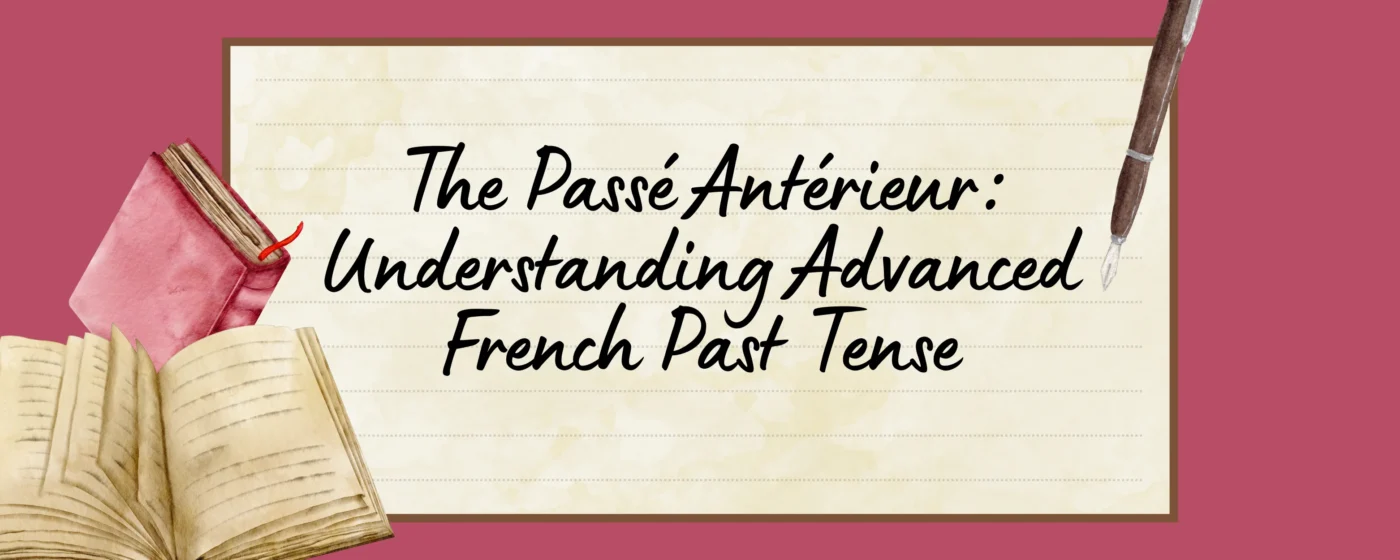Have you ever stared at a French verb conjugation and felt like you were looking at an alien language? Welcome to the world of French irregular verbs! While they might seem like unruly beasts, understanding their patterns and mastering their forms is essential for fluent French. Let’s dive in and tame these linguistic wildcards.
What are Irregular Verbs?
Unlike their regular counterparts, irregular verbs don’t follow predictable conjugation patterns. This means their endings change in unexpected ways depending on the subject and tense. While this might seem daunting, there are methods to approach these verbs systematically.
Common Patterns and Categories
Even though they’re irregular, many French verbs fall into recognizable groups based on shared conjugation patterns.
- Group 1: The big four: être (to be), avoir (to have), aller (to go), and faire (to do/make) are the most frequently used and notoriously irregular verbs.
- Group 2: verbs with similar conjugation patterns, like venir (to come) and tenir (to hold), prendre (to take), apprendre( to learn) and comprendre (to understand)
Eg.
| Prendre | Apprendre | Comprendre |
| Je prends | J’ ap(prends) | Je com(prends) |
| Tu prends | Tu ap(prends) | Tu com(prends) |
| Il prend | Il ap(prend) | Il com(prend) |
| Nous prenons | Nous ap(prenons) | Nous com(prenons) |
| Vous prenez | Vous ap(prenez ) | Vous com(prenez) |
| Ils prennent | Ils ap(prennent) | Ils com(prennent) |
- Group 3: Verbs with irregular past participles, such as voir (to see) and prendre (to take), have unique past participle forms.
Voir – vu
Prendre – pris
By identifying these patterns, you can predict irregularities more easily and remember verbs more effectively.
Conjugation of Key Irregular Verbs
Let’s tackle some of the most common irregular verbs – Être, Avoir, Aller, Venir, Faire, Voir, and Prendre:
- Être (to be):
- je suis
- tu es
- il/elle/on est
- nous sommes
- vous êtes
- ils/elles sont
- Avoir (to have):
- j’ai
- tu as
- il/elle/on a
- nous avons
- vous avez
- ils/elles ont
- Aller (to go):
- je vais
- tu vas
- il/elle/on va
- nous allons
- vous allez
- ils/elles vont
- Faire (to do/make):
- je fais
- tu fais
- il/elle/on fait
- nous faisons
- vous faites
- ils/elles font
- Venir (to come):
- je viens
- tu viens
- il/elle/on vient
- nous venons
- vous venez
- ils/elles viennent
- Voir (to see):
- je vois
- tu vois
- il/elle/on voit
- nous voyons
- vous voyez
- ils/elles voient
- Prendre (to take):
- je prends
- tu prends
- il/elle/on prend
- nous prenons
- vous prenez
- ils/elles prennent
Grammar Rules Got You Down?
La Forêt’s tutors simplify grammar so you can speak confidently and accurately.
Tips for Learning French Irregular Verbs
- Memorization techniques: Use flashcards, create mnemonic devices, or group verbs by patterns as advised above.
- Practice regularly: Consistent exposure is key. Incorporate irregular verbs into conversations, writing exercises, and listening practice. You can also try to make sentences with different irregular verbs regularly.
- Utilise resources: Explore language learning apps, textbooks dedicated to irregular verbs and online courses (hyperlink this to land on the upcoming batches page)
Common Mistakes and How to Avoid Them
- Confusing similar-sounding verbs: être and avoir are often mixed up. Practice using them in context.
I.e Etre with adjectives and Avoir with the nouns to understand the difference in the usage. - Overlooking irregular past participles: Pay attention to the unique forms of verbs.
- Not practising enough: This goes without saying, Irregular verbs are definitely difficult, but not practising them regularly can make its assimilation eleven more difficult.
To prevent these errors use reliable resources for conjugations and practice.
More Essential Irregular Verbs
Let’s expand our list of essential irregular verbs:
- Pouvoir (to be able to):
- je peux
- tu peux
- il/elle/on peut
- nous pouvons
- vous pouvez
- ils/elles peuvent
- Vouloir (to want):
- je veux
- tu veux
- il/elle/on veut
- nous voulons
- vous voulez
- ils/elles veulent
- Devoir (to have to/must):
- je dois
- tu dois
- il/elle/on doit
- nous devons
- vous devez
- ils/elles doivent
- Savoir (to know):
- je sais
- tu sais
- il/elle/on sait
- nous savons
- vous savez
- ils/elles savent
- Dire (to say/tell):
- je dis
- tu dis
- il/elle/on dit
- nous disons
- vous dites
- ils/elles disent
- Lire (to read):
- je lis
- tu lis
- il/elle/on lit
- nous lisons
- vous lisez
- ils/elles lisent
- Écrire (to write):
- j’écris
- tu écris
- il/elle/on écrit
- nous écrivons
- vous écrivez
- ils/elles écrivent
Conclusion
Conquering French irregular verbs might feel like climbing a mountain, but with the right approach and perseverance, you can reach the summit. By understanding patterns, practicing consistently, and utilizing effective resources, you’ll transform these linguistic challenges into triumphs. Remember, every irregular verb you master brings you closer to fluency. So, keep practicing, and bon courage! For more insights into French Grammar and related topics, explore La Forêt French Class.





